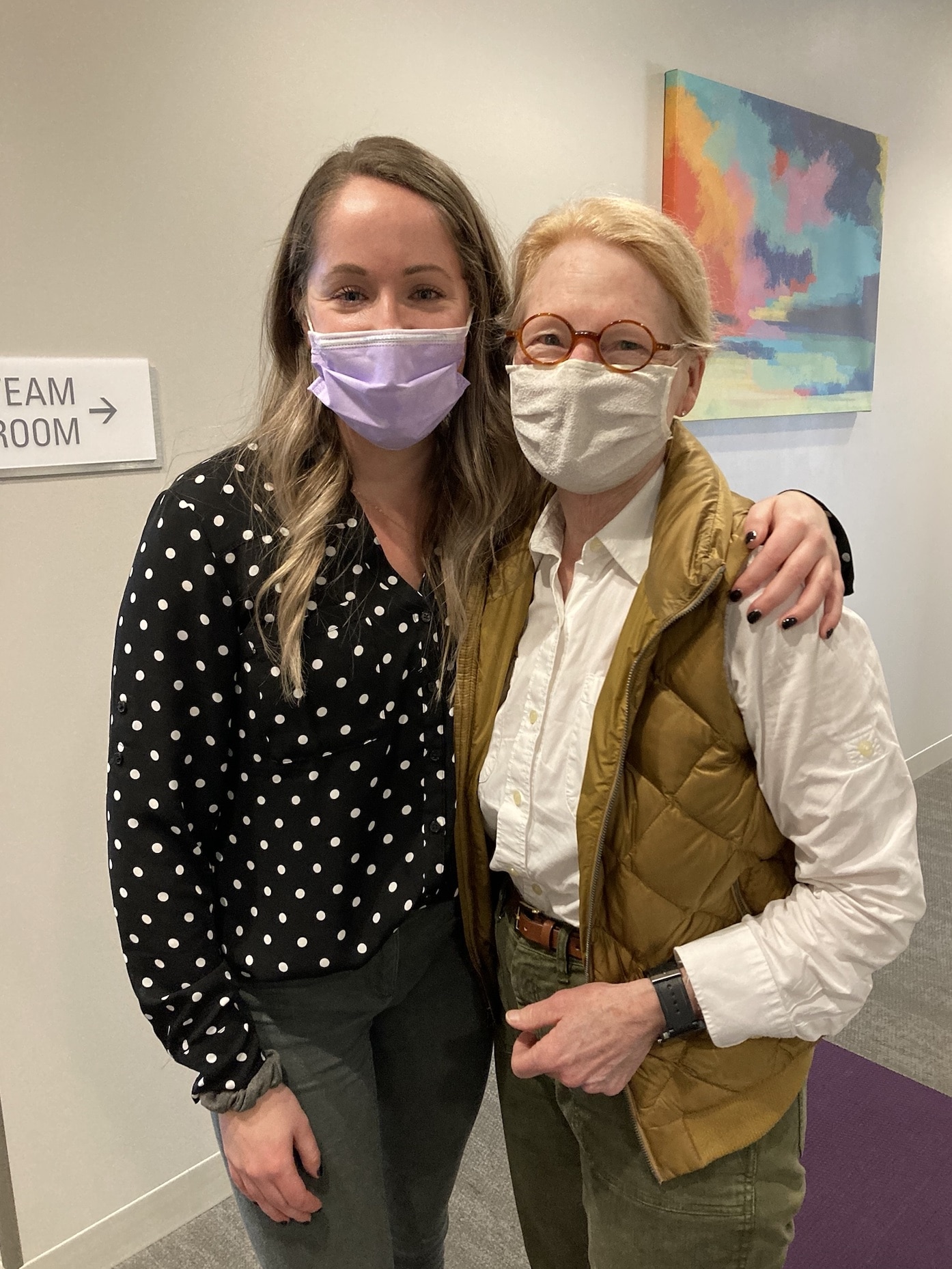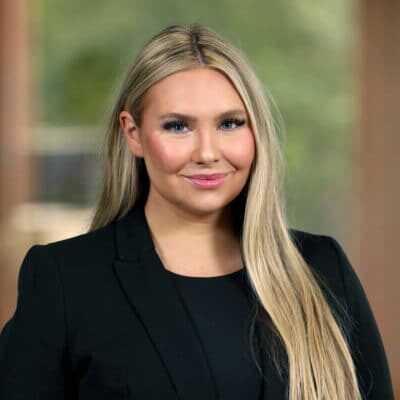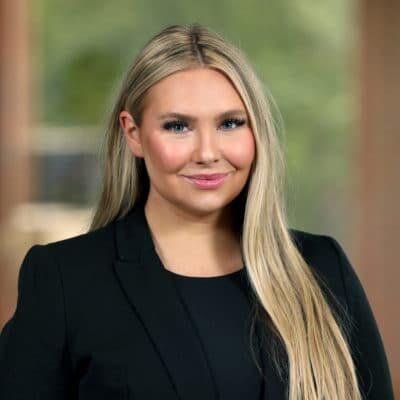“The COATS concept is unique. It’s a bit of an ‘odd couple’ situation—a younger adult student and an older adult. What could they have in common?”
Actually, quite a bit.
Peek inside the relationship of DMU student Abby Bardwell, D.O.’22, and her COATS (Connecting Older Adults To Students) mentor, Martha Moore Davis. I ask them the same questions to learn more about their two-year relationship that started due to DMU’s COATS program. It facilitates one-to-one relationships between active older adults in the greater Des Moines area and graduate-level students pursuing degrees in medicine and the health sciences at DMU.

Hanna de Geest: What made you interested in joining the COATS program?
Martha Moore Davis: I heard about COATS at a DMU Mini Medical School lecture and was taken with the enthusiasm of the student who presented the information. It was presented clearly and enthusiastically, and it was described as beneficial both to the student and the older adult. The concept was intriguing, and I could see that the program was designed to give structure to the relationship but also flexibility in scheduling.
Abby Bardwell: I became interested in COATS at the beginning of my second year because the older adult population is one of my favorite populations to serve. Prior to starting medical school, I had several volunteer opportunities where I worked with older adults. I found that every time I worked with them, I would leave with a little more joy than when I started that day, so they were serving me as much as I was serving them. When I heard about COATS, I knew it would be a wonderful opportunity to develop a relationship with a community member and to try to learn from them on how I can better serve older adult patients as a physician.
HdG: Was it hard to open up to each other in the beginning?
MMD: No, it was very easy. We both were excited to begin talking. It was helpful that COATS provided a “kick-off” event where we met, had a lecture and then had time for us to talk. The sessions were always a great balance of teaching and learning about older adult health issues along with time to process it and discuss it between the two of us: adult and student.
AB: My connection with Martha developed quickly! Each time you meet with your COATS mentor, there are prompts that the organizers give us in case you need conversation topics. However, Martha and I developed a quick connection and we often found that we were not answering most of the provided questions. Instead, we were catching up on each other’s lives and sharing stories.
HdG: Have you ever had a mentor/mentee relationship like this before? If so, what makes this one special or unique?
MMD: I have been in many professional mentoring situations as an Advanced Placement English teacher as well as other positions I have held in the field of education. Those were beneficial mentorships for specific purposes, for example, my being mentored and learning about how to plan and best present lessons, my mentoring students on applying to colleges, etc. The COATS mentor relationship is different in that it is completely voluntary for both participants. It was surprising and refreshing that a student with a demanding schedule would take time to want to know an older adult. As a retired person, I had flexibility in my schedule, but I felt the same commitment to wanting to spend time together to share.
The COATS concept is unique. It’s a bit of an “odd couple” situation – a younger adult student and an older adult. What could they have in common?
COATS gives the student a window into what it is like to be an older adult, whether just daily living experiences, health care experiences, etc. The older adult learns about the challenges of medical school and has a glimpse into the daily life of the student juggling responsibilities. COATS personalizes the experiences of the medical student and the older adult.
HdG: What is an example of the things you talk about when you meet?
MMD: I always want to know what the latest is re: Abby’s interests in what she is pursuing in the medical field, what her insights are. I have appreciated and have been fascinated by the evolution of her interests and her reasoning behind her decisions. This has given me an insight into the field and an appreciation for the decisions she is making. It makes me think about my health care providers and their journey in the field.
AB: We often wouldn’t finish the prompts that were provided to us because we were busy catching each other up on what had happened over the past month. However, there was typically a topic given to us during each monthly meeting and the questions would all relate to that topic.
HdG: What has been the best meet-up/activity you have done together?
MMD: The sessions on campus [pre-pandemic] were a great balance of learning about a topic and having a chance to discuss it. We could share our viewpoints easily. I have loved making lunch for Abby and hopefully giving her a time to relax and take a break from her busy day. Feeling like I have given her something – though small – is very gratifying. I have also loved reveling with her over the birth of her nephews, news of her sisters and their careers, and her parents’ activities. I appreciate that she always asks about my grandsons, my hobbies of writing and playing bagpipes. She is a wonderful listener.
AB: My favorite meet-up has been going to lunch at Martha’s house. She only lives about five minutes from DMU so she would often pick me up right at 12 p.m. after my morning lectures and drop me back off at 12:50. She is an amazing cook and always gifts me a fresh loaf of homemade bread! Our last meet-up second year was a wonderful lunch at her house in March 2020 right before the pandemic hit. At that lunch, another COATS mentor and mentee joined so the four of us shared conversation and fellowship.
HdG: What advice do you have for your peers who might be interested in joining COATS and getting a mentor/mentee but are hesitant?
MMD: I encourage others to join in. The commitment is very workable and attainable. The rewards are immense.
AB: I would encourage any medical student to join COATS. It was often a highlight of my week when we would meet up because it allowed me to get out of the grind of medical school for a bit and enjoy fellowship. There is so much we can learn from the older adult population!
HdG: Martha, what is it about Abby that inspires you?
MMD: Abby inspires me to accomplish my goals. She is a model for loving her work, meeting her goals and keeping her family as a priority.
HdG: Abby, what is it about Martha that inspires you?
AB: The thing that inspires me most about Martha is her healthy lifestyle habits – she is one of the most active older adults I have ever met! She does workout classes, Peloton, rides horses and hikes, just to name a few. I hope to be as active as she is someday.
HdG: Abby, what was the nicest thing Martha said about you?
AB: Martha always says that she has gets more out of our mentorship than I do, but I would say we have both equally enjoyed our mentorship and friendship. She is such a good listener and is always encouraging me to continue pursuing my dreams!
HdG: Martha, what was the most interesting/shocking/unexpected thing you learned from Abby?
MMD: Everything has been fascinating that Abby has shared with me. I have enjoyed our continued text messages during the pandemic. It’s great to feel a continued social connection.

